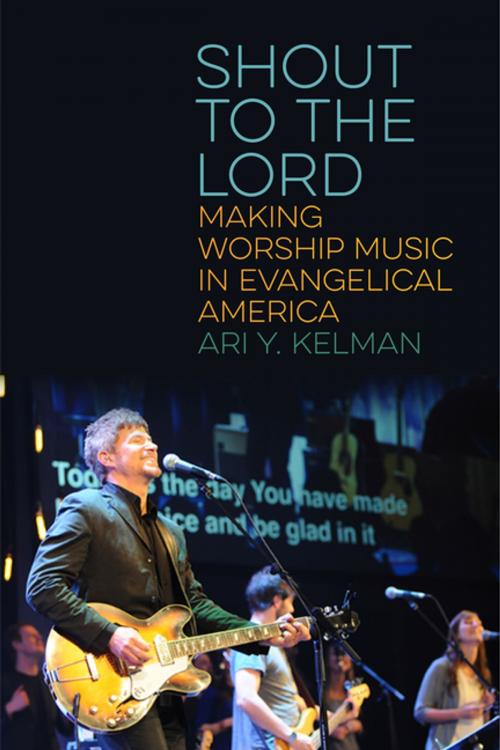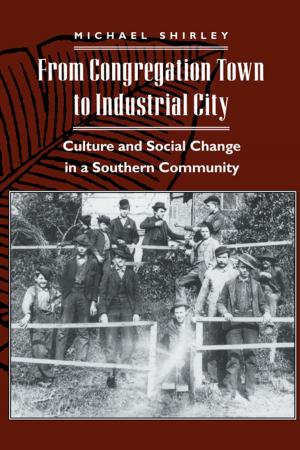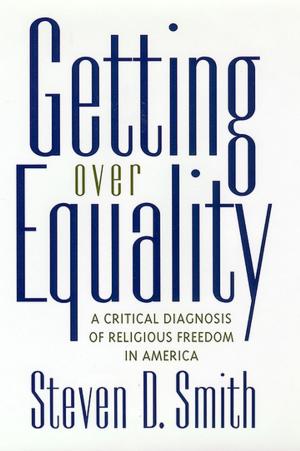Shout to the Lord
Making Worship Music in Evangelical America
Nonfiction, Entertainment, Music, Music Styles, Religious, Religion & Spirituality, Christianity, General Christianity| Author: | Ari Y. Kelman | ISBN: | 9781479810307 |
| Publisher: | NYU Press | Publication: | June 19, 2018 |
| Imprint: | NYU Press | Language: | English |
| Author: | Ari Y. Kelman |
| ISBN: | 9781479810307 |
| Publisher: | NYU Press |
| Publication: | June 19, 2018 |
| Imprint: | NYU Press |
| Language: | English |
How music makes worship and how worship makes music in Evangelical churches
Music is a nearly universal feature of congregational worship in American churches. Congregational singing is so ingrained in the experience of being at church that it is often misunderstood to be synonymous with worship. For those who assume responsibility for making music for congregational use, the relationship between music and worship is both promising and perilous – promise in the power of musical style and collective singing to facilitate worship, peril in the possibility that the experience of the music might eclipse the worship it was written to facilitate. As a result, those committed to making music for worship are constantly reminded of the paradox that they are writing songs for people who wish to express themselves, as directly as possible, to God.
This book shines a new light on how people who make music for worship also make worship from music. Based on interviews with more than 75 songwriters, worship leaders, and music industry executives, Shout to the Lord maps the social dimensions of sacred practice, illuminating how the producers of worship music understand the role of songs as both vehicles for, and practices of, faith and identity. This book accounts for the human qualities of religious experience and the practice of worship, and it makes a compelling case for how – sometimes – faith comes by hearing.
How music makes worship and how worship makes music in Evangelical churches
Music is a nearly universal feature of congregational worship in American churches. Congregational singing is so ingrained in the experience of being at church that it is often misunderstood to be synonymous with worship. For those who assume responsibility for making music for congregational use, the relationship between music and worship is both promising and perilous – promise in the power of musical style and collective singing to facilitate worship, peril in the possibility that the experience of the music might eclipse the worship it was written to facilitate. As a result, those committed to making music for worship are constantly reminded of the paradox that they are writing songs for people who wish to express themselves, as directly as possible, to God.
This book shines a new light on how people who make music for worship also make worship from music. Based on interviews with more than 75 songwriters, worship leaders, and music industry executives, Shout to the Lord maps the social dimensions of sacred practice, illuminating how the producers of worship music understand the role of songs as both vehicles for, and practices of, faith and identity. This book accounts for the human qualities of religious experience and the practice of worship, and it makes a compelling case for how – sometimes – faith comes by hearing.
How music makes worship and how worship makes music in Evangelical churches
Music is a nearly universal feature of congregational worship in American churches. Congregational singing is so ingrained in the experience of being at church that it is often misunderstood to be synonymous with worship. For those who assume responsibility for making music for congregational use, the relationship between music and worship is both promising and perilous – promise in the power of musical style and collective singing to facilitate worship, peril in the possibility that the experience of the music might eclipse the worship it was written to facilitate. As a result, those committed to making music for worship are constantly reminded of the paradox that they are writing songs for people who wish to express themselves, as directly as possible, to God.
This book shines a new light on how people who make music for worship also make worship from music. Based on interviews with more than 75 songwriters, worship leaders, and music industry executives, Shout to the Lord maps the social dimensions of sacred practice, illuminating how the producers of worship music understand the role of songs as both vehicles for, and practices of, faith and identity. This book accounts for the human qualities of religious experience and the practice of worship, and it makes a compelling case for how – sometimes – faith comes by hearing.
How music makes worship and how worship makes music in Evangelical churches
Music is a nearly universal feature of congregational worship in American churches. Congregational singing is so ingrained in the experience of being at church that it is often misunderstood to be synonymous with worship. For those who assume responsibility for making music for congregational use, the relationship between music and worship is both promising and perilous – promise in the power of musical style and collective singing to facilitate worship, peril in the possibility that the experience of the music might eclipse the worship it was written to facilitate. As a result, those committed to making music for worship are constantly reminded of the paradox that they are writing songs for people who wish to express themselves, as directly as possible, to God.
This book shines a new light on how people who make music for worship also make worship from music. Based on interviews with more than 75 songwriters, worship leaders, and music industry executives, Shout to the Lord maps the social dimensions of sacred practice, illuminating how the producers of worship music understand the role of songs as both vehicles for, and practices of, faith and identity. This book accounts for the human qualities of religious experience and the practice of worship, and it makes a compelling case for how – sometimes – faith comes by hearing.















